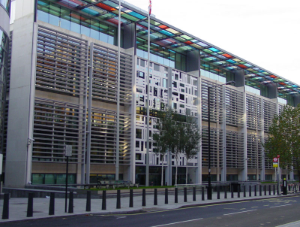Large increase planned to tackle backlog, up from just 597 caseworkers in 2019-20
Immigration minister Robert Jenrick said in answer to a written parliamentary question recently that the Home Office aims to have 2,500 asylum caseworkers in place by August of this year. This compares to just 597 caseworkers in 2019-20.
 Image credit: UK GovernmentLabour MP Afzal Khan asked the Home Secretary last month whether it is her Department's intention to have 2,400 asylum decision-makers, as Prime Minister Rishi Sunak had indicated on 13 December 2022.
Image credit: UK GovernmentLabour MP Afzal Khan asked the Home Secretary last month whether it is her Department's intention to have 2,400 asylum decision-makers, as Prime Minister Rishi Sunak had indicated on 13 December 2022.
Sunak said in December's statement on illegal migration that the Home Office would double the number of asylum caseworkers. He added that this and other measures would mean that the Government expects to abolish the backlog of initial asylum decisions by the end of 2023.
Robert Jenrick answered Afzal Khan's question on 11 January and confirmed: "Our aim is for Asylum Casework to have 2,500 caseworkers by August 2023, with around 10% dedicated to children's casework and we have recruitment plans in place to ensure we reach those numbers."
The Home Secretary had earlier told the House of Commons Home Affairs Committee on 23 November of last year that the Home Office currently had over 1,000 caseworkers and expected to have approximately 1,300 by March 2023.
Suella Braverman said: "The rate of decision making is one decision a week per decision maker. We need to increase that. That is why we are increasing the number of asylum caseworkers. We have done that by 80%, moving from 597 staff in 2019-20 to more than 1,000 today. We are on course for a further 500 people by March next year, which would take our total to approximately 1,500."
In response to a query from Simon Fell MP as to whether that figure included attrition of existing caseworkers, the Home Secretary clarified: "No. Attrition means that we are expecting to have approximately 1,300 caseworkers by March next year—after attrition."
Matthew Rycroft, Permanent Secretary at the Home Office, told the Home Affairs Committee that the Home Office was paying bonuses to keep caseworkers from leaving. He said: "[R]etention is an issue. These are among the lowest paid civil servants in the civil service. We have found a way of paying a retention allowance, so that if people stay for a year, they get paid £1,500 more; if they stay for two years or more, they get £2,500. That is halving the leaving rate, doubling the retention rate."
In further evidence on 21 December before the House of Lords' Justice and Home Affairs Committee, the Home Secretary said: "We set out the plan last week and we are now going to embark on it, so there is an element of aspiration and ambition, and it is right to have a plan. We want to triple the productivity of caseworkers. We have already doubled the number of decision-makers, and we want to double that number again."
Matthew Rycroft added: "As the Home Secretary said … we have already doubled the number of caseworkers. That means that we have brought in over 600 additional new caseworkers, and they have required training. We have done the vast majority of the training in-house, so we take senior caseworkers and make the training of newcomers into the system a proportion of their role. We will do that again as we go from just over 600 to 1,250 over the coming year. We need to get that right; we need to model very carefully what impact the reduction in senior people's time because of the training requirement has on the total output of the asylum decision-making system.
"We have trialled the more rapid caseworking in a pilot in our small hub in Leeds, where we were seeking to get caseworkers who were fully trained making up to four decisions a week. That was successful in the short term, but we now need to keep that pace up and spread the learning from that pilot into our other hubs, including Sheffield. That is the stage of the plan described by the Home Secretary that we are now at."
As the Refugee Council reported in November of last year, the backlog of people waiting for an initial decision on their asylum claim reached over 120,000 at the end of June 2022.
The Sun newspaper reported last week that the backlog was around 150,000.